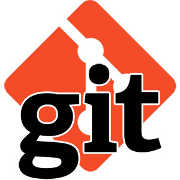| Linus Torvalds On Git |
| Written by Sue Gee |
| Friday, 18 April 2025 |
It is 20 years since Linus Torvalds wrote Git, regarding it as a tool necessary for building the Linux Kernel. Looking back says that it was never a big thing for him and that the credit for Git should go to Junio Hamano and the others who have been involved in the project.
Git is a distributed version control system which keeps track of every change made to code over time. This lets you, or a team, go back to previous versions of a project and see exactly who made what changes and when. It also enables you to compare different versions of your files and revert mistakes. Git was created by Linus Torvalds, the person who created the Linux kernel. He started its development in April 2005 after the Linux kernel developers lost access to BitKeeper, a proprietary source control management system they had been using for free. Torvalds famously developed the initial version of Git in about ten days, with the first commit being on April 7th, 2005 and the first merge of multiple branches occurred 20 years ago today, on April 18th, 2005 His goals for Git included:
Having created Git, Linus Torvalds handed over its maintenance to Junio Hamano in July 2005, who has continued to guide its evolution over two decades. In addition to being essential for Linux kernel development, Git revolutionized software development worldwide. Its distributed nature and flexible branching model have made it the most popular version control system, used by the vast majority of developers today. To celebrate its 20th anniversary, GitHub interviewed Torvalds, where in response to questions from Taylor Blau he reflected on Git’s origins, early challenges, and expressed some surprise at its impact on software development today, explaining that he himself makes liitle use of it.
One anecdote in the video is that recently Torvalds college-age daughter sent him a text message to tell him that he's better known at her CS lab for Git than for Linux, "because they actually use Git for everything there." He found this as "ridiculous" because having handing Git off to Hamano who's been heading up development, he lost interest in it, devoting himself instead to the Linux kernel: When it came to Git, it was like Git did what I needed within the first year. In fact, mostly within the first few months. And when it did what I needed, I lost interest. Because when it comes to kernels, I’m really interested in how they work, and this is what I do. But when it comes to SCMs, it’s like—yeah, I’m not at all interested. Later he explains that he himself makes limited use of Git and uses it via the command line. I occasionally do statistics on my Git history usage just because I’m like, “What commands do I use?” And it turns out I use five Git commands. And He is however pleased that, nowadays Git is apprecited and contrasts today's level of satisfaction with to the complaints of the early days: I just remember the first few years, the complaints about why the names of the subcommands are different for no good reason. And the main reason was I just didn’t like CVS very much, so I did things differently on purpose sometimes. And the shift literally between 2007 and 2010—those years, when people went from complaining about how hard Git was to use to really appreciating some of the power of Git, was interesting to me. At the end of the interview when thanked for 20 years of Git, Torvlads responds: Well, hey, I did it for my own very selfish reasons. And really—I mean, this is the point to say again that yes, out of the 20 years, I spent four months on it. So really, all the credit goes to Junio and all the other people who are involved in Git that have by now done so much more than I ever did. More InformationGit turns 20: A Q&A with Linus Torvalds Related ArticlesLinus Torvalds On Linux Past, Present and Future Linus Torvalds Interview - The Early Years Git Adds Protocol Version 2 Support To be informed about new articles on I Programmer, sign up for our weekly newsletter, subscribe to the RSS feed and follow us on Twitter, Facebook or Linkedin.
Commentsor email your comment to: comments@i-programmer.info
|
| Last Updated ( Friday, 18 April 2025 ) |



